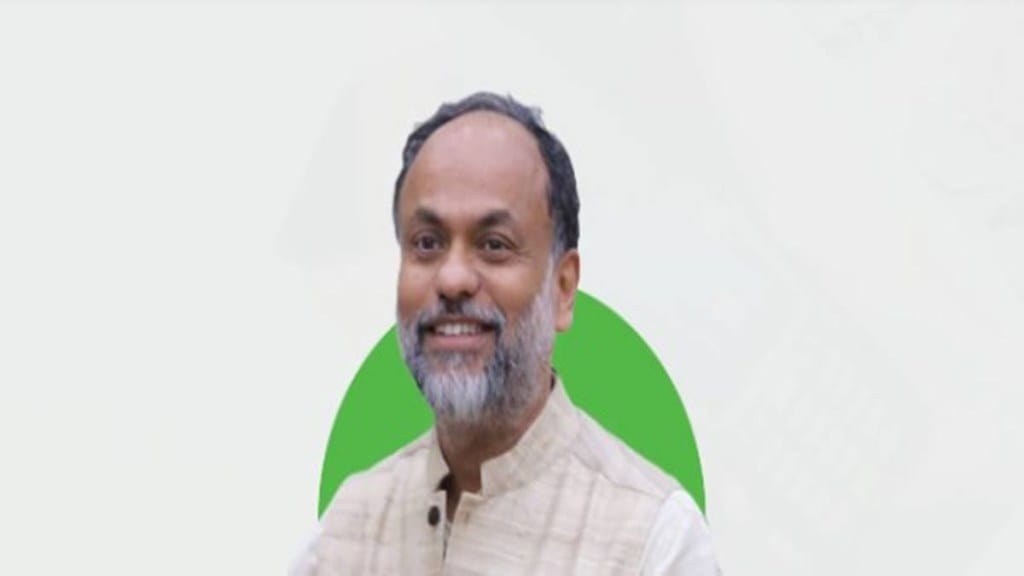The insurance sector is transitioning from a traditional rule-based regulatory framework to a principle-based approach, which facilitates ease of doing business, fosters growth opportunities, promotes healthy competition, and encourages innovation, Debasish Panda, chairman, Insurance Regulatory and Development Authority of India (Irdai), said on Friday.
Delivering a special address, ‘Insurance for All by 2047’, at the third edition of the FE Modern BFSI Summit, Panda said the rule-based regulatory framework was insufficiently equipped to harness the full potential of the insurance sector and was, in fact, constraining its growth.
Panda said that after extensive consultations and engagements with all stakeholders, Irdai introduced several rationalisation measures in recent years. “At one point, we had 78 regulations accompanied by their respective compliance requirements. Even remembering the names of all these regulations was a tedious task,” he noted.
He added that the first task for Irdai was to streamline the regulatory framework by eliminating redundant requirements and transitioning to a principle-based regulatory architecture. “As a result, 78 regulations have been condensed to 20. Of these, only 15 pertain to the conduct of insurance operations, while the remaining are internal to the regulatory setup.”
Consequently, he said, registering an insurance company has now become a seamless process, while insurers can quickly launch insurance products under the ‘use and file’ regime.
Panda said, in addition to reforming the entire regulatory framework, Irdai has also taken several steps in the last two years, including promoting extensive use of technology, taking insurance to hinterlands, and more.
Consequently, he said, the past two years alone have seen six new insurance companies entering the market, breaking a 12-year hiatus in the life segment and a five-year gap in the life and non-life/health segments.
“This resurgence not only underscores the sector’s inherent potential but also reflects renewed and heightened interest from investors,” Panda said.
Currently, the Indian insurance sector is the 10th largest insurance market globally and is poised to jump to the sixth position by 2032. India’s insurance sector grew at a CAGR of 10%, with premium income exceeding ₹11 trillion in the previous fiscal.
On future growth, Panda said the universalisation of insurance will become possible through Bima Sugam, an online insurance marketplace for buying, selling, and servicing insurance policies, as well as settling claims.
“The tech-led marketplace will transcend geographical boundaries and income disparities. It will be integrated with various data stacks to enable seamless flow of information, making onboarding, processing, pricing, underwriting, and claim processing more efficient,” he added.
Later, speaking at a panel discussion, ‘Journey to 2047: Beyond Staying on Course with Outreach Expansion,’ Tapan Singhel, MD and CEO of Bajaj Allianz General Insurance, said all segments of insurers including life, health or non-life need to target gram panchayats to have last-mile penetration.
Sumit Bohra, president, Insurance Brokers Association of India, highlighted that around 500,000 people are employed by the insurance sector, including those in insurance companies, brokers, agents, and point-of-sale persons (POSPs). “Technology led by people in a phygital model can lead to widespread insurance outreach,” he added.
Speaking on life insurance, Casparus JH Kromhout, MD and CEO of Shriram Life Insurance, which also provides coverage for unorganised workers like truck drivers, emphasised the importance of prompt claim payments. “Prompt claim payments are a key factor in creating awareness in insurance among the community.”
On the tax treatment of insurance products, Ravi Vishwanath, CEO of Narayana One Health & director of Narayana Health Insurance, said health insurance is taxed like luxury goods with an 18% GST. “Only 40 out of every 100 needed surgeries get done, and the rest of the people largely don’t undergo surgery because they can’t afford it,” he pointed out.
The panel discussion was moderated by Roshun Povaiah, editor, Financial Express – Digital.
